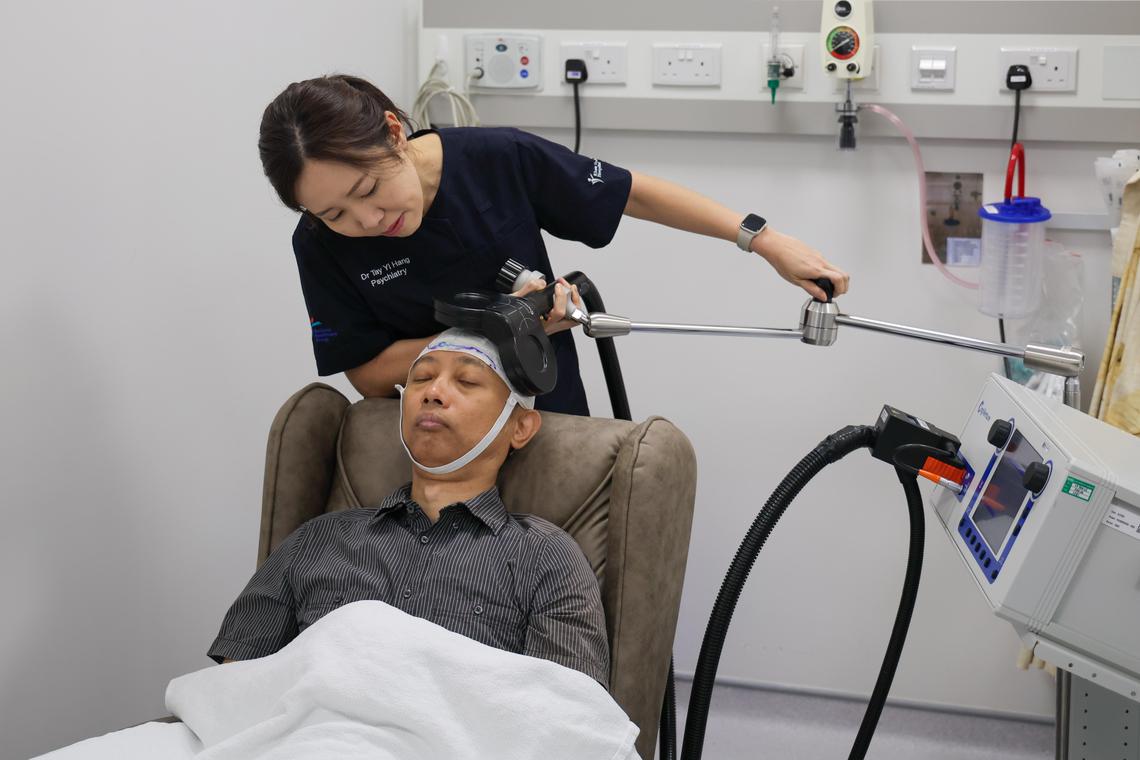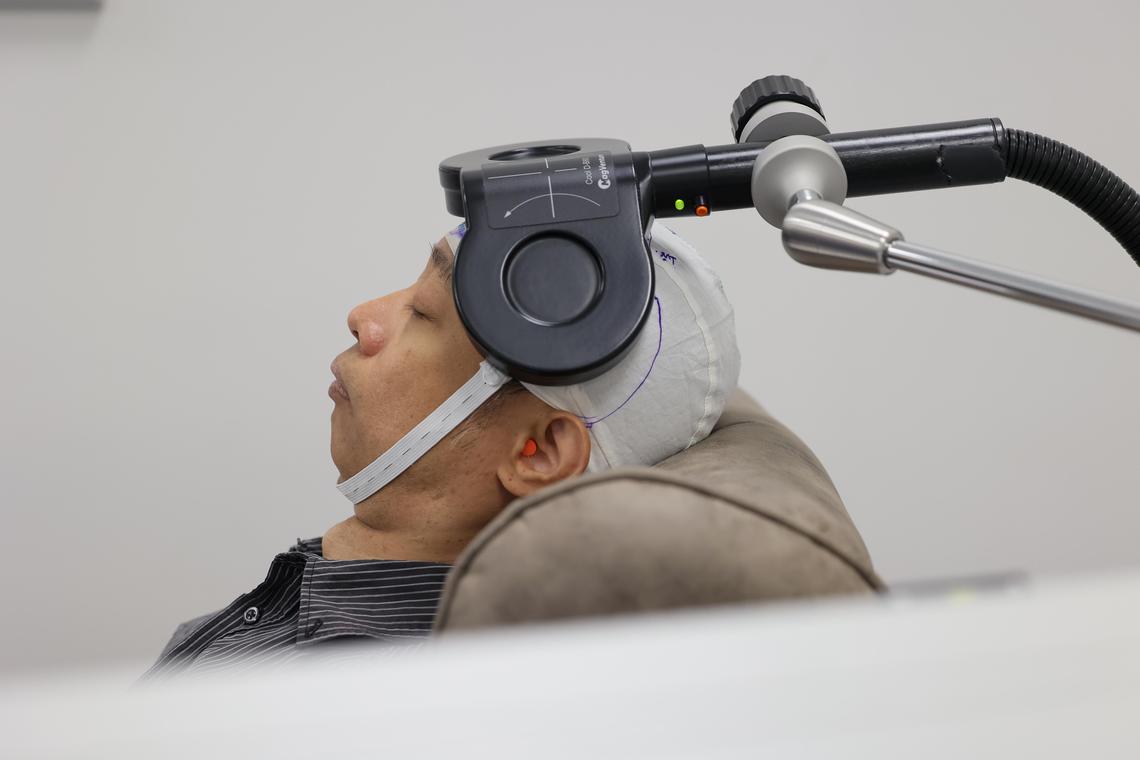SINGAPORE – Mr Ng Chee Hiong shunned contact with others for years, staying at home for days on end, self-isolating – at least on one occasion – for as long as two months and only coming out after running out of food.
And when he made it to the outside world, he would walk staring straight down at the pavement, a hat worn low, his mop of long hair shielding him from seeing those around him.
Depression and anxiety has haunted Mr Ng, 52, for over a quarter of a century.
He said that he had a difficult childhood beset by family problems. Things went bad after he experienced study-related stress.
Mr Ng said: “1998 was (when I had) my first appointment with a psychiatrist… I was studying in the university and the stress was tremendous. My personal life was also not good.”
He was diagnosed with depression and anxiety that year, and started treatment.
Over the years, he underwent many trials of antidepressants and therapy, but he did not respond well to them. In 2005, the engineer relapsed and had to stop work for a year.
That happened again in 2011.
In 2017, following a severe relapse, Mr Ng resigned from his job at an engineering firm and withdrew from social life.
But thanks to a different treatment made available, things are now looking up for Mr Ng: In June, he started working in the laundry room of a nursing home – his first job in over eight years.
“It’s a part-time job to help me transit into the working world… Right now, I am taking one step at a time,” he said.
Mr Ng is among a small but growing group of Khoo Teck Puat Hospital (KTPH) patients with treatment-resistant depression who are receiving transcranial magnetic stimulation (TMS), a non-invasive treatment.
TMS delivers magnetic pulses via a coil to stimulate nerve cells in underactive parts of the brain.

Dr Tay Yi Hang adjusting the placement of the transcranial magnetic stimulation machine during a brain stimulation therapy session.
PHOTO: LIANHE ZAOBAO
It is used to treat conditions such as major depressive disorder (MDD), also known as depression, and obsessive-compulsive disorder (OCD) in adults.
Mr Ng is sharing his story to give hope and create awareness of the therapy that he said helped him to get his life back.
TMS became more accessible in Singapore after the authorities announced in October 2024 that MediShield Life would cover its cost, along with more outpatient treatments, to support the shift in healthcare delivery from hospitals to outpatient and home settings.
When Mr Ng underwent his first course of TMS treatment, he experienced a drop in negative thoughts straight away. That is how he knew it was working, he said.
“I am able to think about other things… that keeps me going every day,” he added.
Mr Ng’s TMS sessions takes place at KTPH’s outpatient psychological medicine clinic at Admiralty Medical Centre in Kampung Admiralty in Woodlands Drive.
His doctor, Dr Tay Yi Hang, one of six psychiatrists there, was the one who started the TMS service at KTPH in May 2022.
Since then, an average of about 10 patients with treatment-resistant MDD each year have received the treatment, but this mark has already been crossed in 2025.
Research shows that more than 35 per cent of patients with MDD have treatment-resistant depression.
This is a term that is often used for patients who have failed to respond to two different antidepressants despite adequacy of the treatment trial and adherence to treatment.
The chance of responding to the third antidepressant is usually less than 17 per cent, but with TMS, the response rate is 60 per cent, said Dr Tay.
“Based on what we have seen so far at KTPH, approximately 60 per cent of patients who have undergone TMS treatment have achieved at least a 50 per cent reduction in depression rating scales,” said Dr Tay.
Furthermore, about 50 per cent of patients experienced a significant improvement, becoming virtually asymptomatic.
Dr Tay said the centre also uses TMS for patients with OCD, though that is less popular as it involves the provocation of the patient’s symptoms to activate specific brain circuits before the session.
Each session of TMS usually lasts three minutes or 18.5 minutes, depending on the protocol prescribed. There is no pain, but the frequency of sessions and cost might deter some patients.
The recommended number of TMS sessions is about 30, conducted daily over six weeks, or twice or thrice daily over two to three weeks. Each session costs $125.
Mr Ng completed 30 TMS sessions in mid-2022. That was after his long-time private sector psychiatrist retired and advised him to find not just a new psychiatrist but also a psychologist to help him.
He found both, and he achieved a good response with the TMS treatment. Encouraged by this progress, he continued his medication and therapy with a psychologist at KTPH.
However, Mr Ng experienced a return of his symptoms around nine months later, and went for a second course of TMS in early 2023. To sustain these gains, he has continued with monthly maintenance TMS ever since.
He pays for his maintenance sessions as they are not covered under MediShield Life, which covers up to 24 sessions for the first round of TMS treatment, and up to 15 sessions if the treatment is repeated.
TMS became available in Singapore in 2015, when Promises Healthcare in the private sector brought it in. IMH started offering it soon after for patients with treatment-resistant depression.
About three years ago, it started to use it for patients with OCD.
In 2024, IMH started clinical trials to study a personalised form of TMS, which involves mapping a person’s brain using scans to locate a precise spot to target during the stimulation.
Another hospital here that offers TMS for treatment-resistant depression is the National University Hospital.

